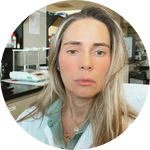About This Project
The etiological agent for Chagas' disease is the protozoan parasite Trypanosoma cruzi, which affects 6 - 7 million people primarily in Latin America. The chronic stage of infection causes cardiomyopathy and the enlargement of other organs resulting in disease burden and death. There is an urgent need to replace the clinical therapeutics (benznidazole & nifurtimox) and this proposal focuses on a compound screen to observe a hit expansion with the target T. cruzi glucokinase.
Ask the Scientists
Join The DiscussionWhat is the context of this research?
Chagas' disease (CD) is a neglected tropical disease (NTD) that causes cardiomyopathy and the enlargement of other organs ultimately resulting in disease burden and death. The etiological agent for CD is Trypanosoma cruzi, which is a unicellular parasite that infects its host cells. Critically important to the parasite's survival is the metabolite glucose-6-phosphate (G6P). An enzyme that produces G6P is T. cruzi glucokinase (TcGlcK) and its inhibition has been shown in various medicinal chemistry studies to result in cell death. The underlying goal of this research is to replace the clinically available therapeutics such as benznidazole and nifurtimox as they are responsible in unwanted side effects. We have an interest in discovering novelTcGlcK inhibitors.
What is the significance of this project?
Our proposed research aims at identifying viable drug leads by illuminating on a promising core scaffold identified from a high-throughput screen of 13,040 compounds that was published in 2019. We plan to perform a hit expansion by running a primary screen from a custom chemical library of <100 compounds. The hits will be compared to our HTS campaign. It is expected that the primary screen against TcGlcK will reveal more potent analogues. This contribution is significant because it is expected to lead to a new therapeutic candidate that will surpass the effectiveness of benznidazole and/or nifurtimox.
What are the goals of the project?
The main goal for the project is to observe a hit-expansion by running a focused screen. The compound library we plan to purchase will include less than 100 compounds that are very similar in structure to the original confirmed hit identified forTcGlcK from the HTS campaign. Once we learn which compounds inhibit TcGlcK, we will perform in vitro biological assays at a future date, which is beyond the scope of this proposal.
Budget
The compound screening library (<100 compounds) will be used for a acquiring a hit expansion when screened against the molecular target T. cruzi glucokinase (TcGlcK).
Definitions in this context. "Hit" is defined as a compound that acts as a TcGlcK inhibitor in a compound screen and its inhibitory activity is retested and confirmed. "Hit Expansion" refers to compound derivatives of an original hit that cause inhibition to TcGlcK.
Endorsed by
 Project Timeline
Project Timeline
The goal will be to observe TcGlcK inhibition from the compound screening library. Unconfirmed compounds will run through a counter screen that detects for false positives, and if false positives are found, they will be filtered from the candidate hit selection. The top confirmed hits (molecules of interest) will be thoroughly tested against TcGlcK for inhibitory constant values and the mode of inhibition will be determined by analyzing Dixon plots.
May 03, 2023
Project Launched
Jul 14, 2023
July 2023: TcGlcK over-expression in E. coli and purification.
Jul 28, 2023
July 2023: Perform a primary compound library screen vs. TcGlcK.
Aug 11, 2023
Aug. 2023: Perform a counter screen (to filter away false positives).
Sep 29, 2023
Sept. 2023: Perform enzyme – inhibitor kinetics on the top 10 validated hits.
Meet the Team
Affiliates
Dr. Edward L. D'Antonio
My training is in Chemistry and I received my Ph.D. at North Carolina State University in 2010. From 2010-2013, I was a postdoctoral fellow at the University of Pennsylvania where I was trained in structural biology and medicinal chemistry. I have published a total of 20 scientific articles/patents and I have mentored 22 undergraduates at USC Beaufort. In 2016, Dr. Gustavo F. Mercaldi and I worked together on a high-throughput screening campaign (Campinas, Sao Paulo, Brazil), in which we ran a primary screen of 13,040 compounds against the target glucokinase in Trypanosoma cruzi (the etiological agent that causes Chagas' disease). We were successful in finding novel inhibitors and the manuscript of the project was published in 2019.
My webpage: www.uscb.edu/edant
Since 2013, the goal of my research program has been to identify chemical compounds that inhibit protein targets of pathogenic microorganisms. The drug discovery strategies that I employ include structure-based drug design, hit-to-lead expansions, structure-activity relationships, and high-throughput screening. Compounds are further developed by experimentally searching for higher efficacy and lower toxicity than clinically used drugs for the treatment of neglected tropical diseases.
Additional Information
University Website.
D'Antonio Laboratory (Univ. of South Carolina Beaufort)
Social Media Links.
D'Antonio Laboratory (Facebook)
Dr. Edward L. D'Antonio (LinkedIn)
Project Backers
- 10Backers
- 100%Funded
- $2,200Total Donations
- $220.00Average Donation

